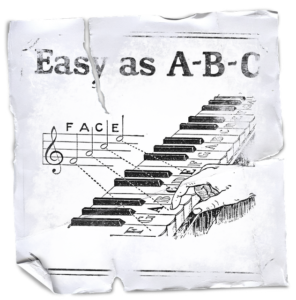Very often you find a lot of reasons not to start something new in your life. This is normal, because we all are used to live in our comfort zone. Piano learning is not an exception. I’ve collected 6 piano learning myths which many people think of instead of just trying to start.

-
- You can’t learn if you’re grown up
Children are like sponges. At the age of 6 a child can start piano lessons and go along fast but that doesn’t mean you can’t learn as an adult. Do you believe that you can’t learn a new language as an adult – or learn how to use a new mobile phone?
Our brains never stop learning our whole lives. So if you feel the urge to learn the piano, you should go for it. It has enormous benefits for the brain and coordination, boosts self-esteem and is very relaxing.
- You must have big hands
One of the most famous pianists of all time was Vladimir Ashkanasy and he had fairly small hands. And he’s just one of many. Just watch him playing!
There are creative ways around dealing with large hand stretches on the piano. One way is to see if you can take a difficult to reach note with the other hand at that moment. Another thing you can do is jump the interval quickly, while using the pedal. Or, if all else fails, leave one or two notes out. So if you have small hands, know that there’s always a way!
- You can’t learn a difficult piece that you love until you’ve learnt easier pieces
While you do need some basic skills to learn any piece of music, there’s nothing to stop you tackling something that’s a bit beyond your ability. By doing so you will bring your reading and playing skills to a new level.
A piece that’s way beyond your ability might not be realistic, but virtually every popular classical piece of music has multiple simple arrangements available, which makes it very easy to accomplish. You can always tackle the original, more difficult version after you’ve mastered the easy version.
- You have to practice for hours every day
Actually, there is much evidence to show that practice is more effective in short bursts. Whenever you feel yourself tiring, walk away from the piano and do something else for a while. Three ten minute practice sessions can be just as good as one half hour, or, some think, even better.
- You can’t find a teacher if you live out in the sticks
This argument is blown out of the water these days now you can now take piano lessons on the internet – and many teachers do this very successfully! Ideally, it’s best to invest in a good camera and microphone set-up, but even this isn’t absolutely essential to begin with. I have successfully given advanced lessons using FaceTime on my iPhone!
- You need to have a big space to put a piano in your home
In recent years, manufacturers have really upped their game in the digital piano industry. It really isn’t necessary now to have a real piano in order to learn classical piano. What’s more, a top notch digital piano from Yamaha, Casio, Korg, Roland and other industry leaders can cost much less than an acoustic piano.
Other benefits of buying a digital piano is that you can turn the sound down (your neighbours will love you!). You can easily move it to another room whenever you need to. And finally, unlike an acoustic piano which needs to be tuned at least once a year, and sometimes twice, your digital piano will never go out of tune.
So if you’ve been putting off learning the piano for any of these reasons, you’ve got no excuse now!